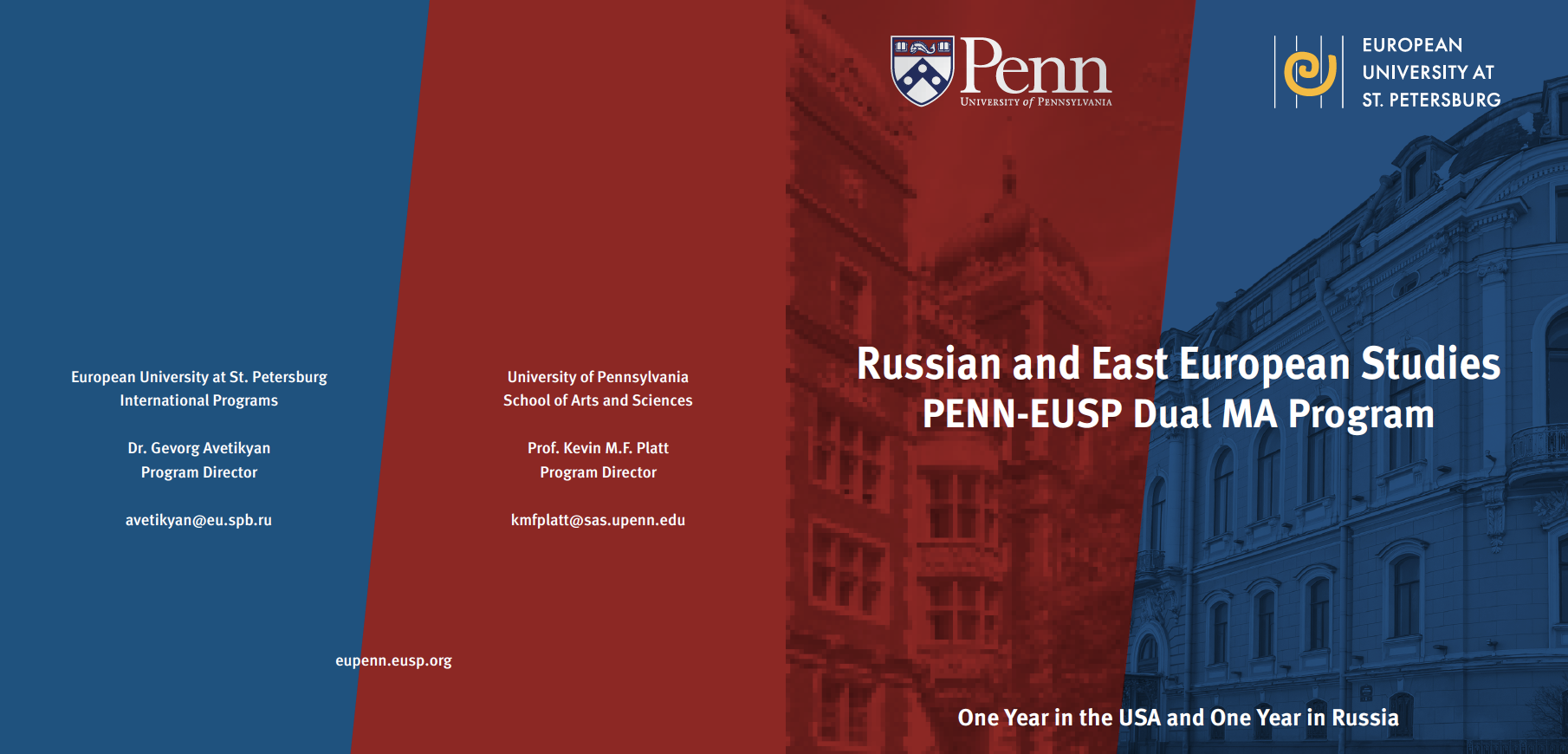
The University of Pennsylvania Graduate Group in Russian and East European Studies, in collaboration with the European University at St. Petersburg (EUSP), offers a two-year dual degree program in Russian and East European Studies. The program is aimed at Americans, Russians and international students who have acquired the B.A. or equivalent in any discipline of the humanities or social sciences. Students spend one year at Penn, followed by a summer and a year at EUSP, engage in archival or field research leading to a thesis, and undertake intensive language study. Each student pursues a specified academic discipline of concentration represented among the faculty of the Graduate Group (anthropology, art history, demography, film studies, history, international business studies, international relations, energy policy, Jewish studies, literary and cultural history, medieval studies, political science, sociology, etc.) in their work in the program. English is the main language of instruction for this program at both UPenn and EUSP. In addition, a wide choice of courses taught in Russian is available at EUSP. At the conclusion of the program students receive coordinated M.A. degrees from both Penn and EUSP. Graduates of the program will be well prepared to pursue either further study at the Ph.D. level or to go on to careers in government service, think tanks and business in the United States, their home countries or internationally. The position of Penn between Washington, D.C. and New York and EUSP’s situation in St. Petersburg, as well as the significant networks and contacts of the faculty of both institutions, provide opportunities for placement. Thanks to generous support from Polymetal International Plc., a limited number of scholarships will be available on a competitive basis for applicants to the program, including citizens of Russia, the USA, and other countries. Startup of this program at the University of Pennsylvania has been made possible by a seed grant from the Carnegie Corporation of New York.
 Russian and East European Studies
Russian and East European Studies